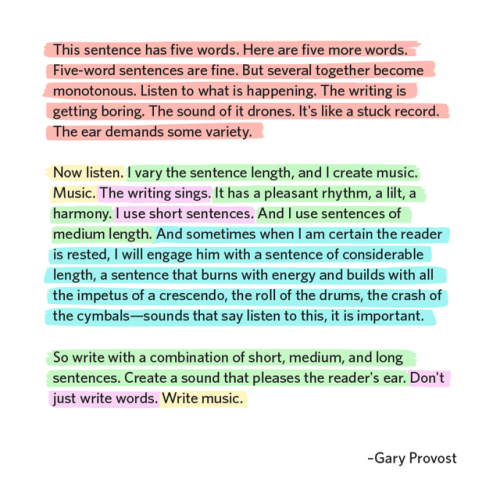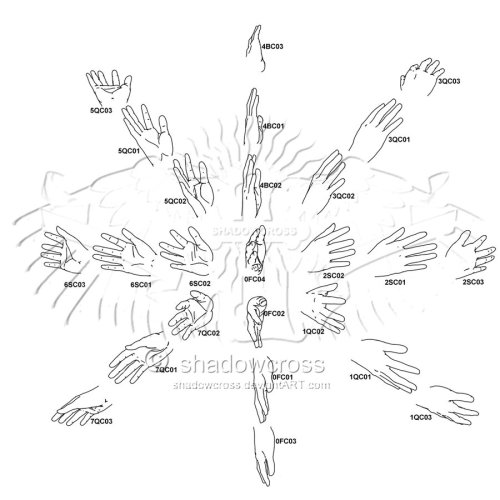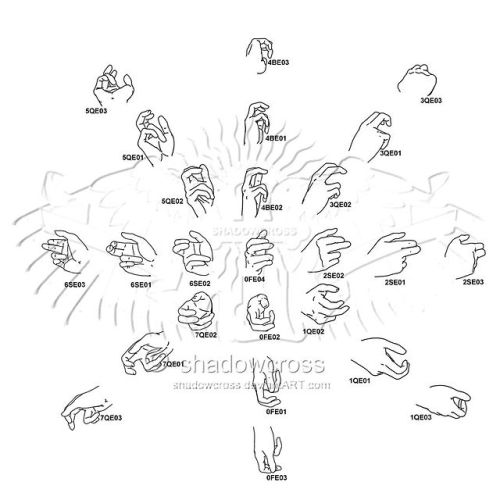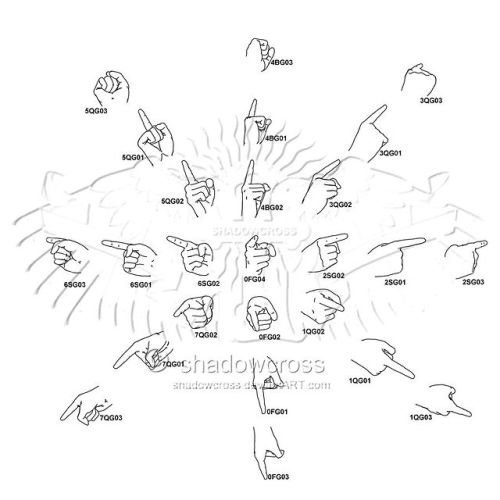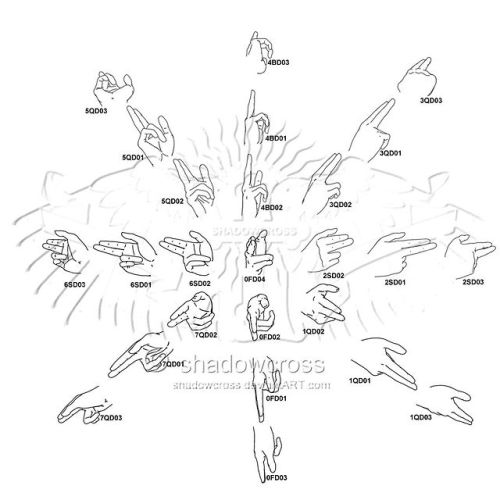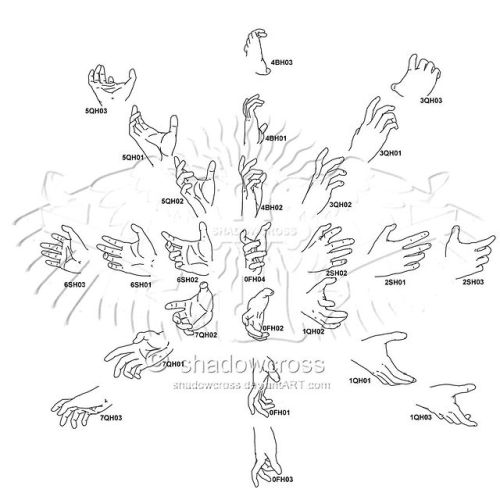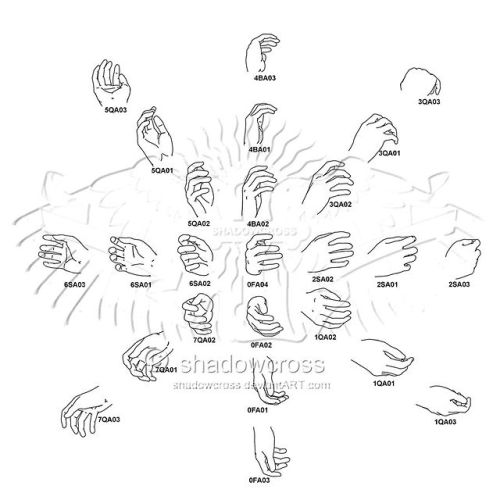Editing Without Experience
Hi!
I don’t really have any editing experience. How do I edit so it still sounds like my own writing?
Thanks :)
Editing without Experience
Editing isn't about trying to make your writing sound different. You're just taking what's there and making it better... polishing it up. :)
Here are my previous posts on editing that will help you get started!
Self-Editing Tips Editing Tips Ten Ways to Cut Your Word Count Redrafting and Rewriting After First Draft Revising Your Story Guide: The Different Types of Editing
•••••••••••••••••••••••••••••••••
I’ve been writing seriously for over 30 years and love to share what I’ve learned. Have a writing question? My inbox is always open!
♦ Questions that violate my ask policies will be deleted! ♦ Please see my master list of top posts before asking ♦ Learn more about WQA here
More Posts from M3a7gr1nd3r and Others
List of Vocal Sounds for Smut
I present to you a - probably quite incomplete, I’m sure I’m missing a lot of speech sounds - reference list and a bit of a guideline for the different ways one can describe the sounds your characters make whilst writing smut. I’ll definitely be referring to it, because I sometimes get stuck on exactly how to describe a particular noise. (aka, “he can’t groan again, he just groaned last paragraph”)
Sounds (noun, both independently and describing speech): breath/breathe, gasp, moan, groan, pant, whimper, whine, shout, yelp, hiss, grunt, cry, scream, shriek, sob, growl, curse, sound, sigh, hum, noise, squeak, snarl, howl, roar, mewl, wail, choke, keen, purr
Sounds (noun, describing speech): rasp, husk, drawl, plea, murmur, whisper, beg
Descriptors (adjective): loud, hushed, quiet, low, high, high-pitched, little, tiny, soft, deep, unrestrained, restrained, strained, breathy, rough, sudden, short, drawn-out, sharp, harsh, hard, thick, smooth, thin, heavy, impassioned, insistent, hungry, passionate, repeated, filthy, debauched, sweet, slow, deliberate, guttural, languid, surprised, husky, distracted, happy, pleased, satisfied, wordless, cut-off, bitten-off, contented, hoarse, extended, long, depraved, aching, choked, strangled, broken, helpless, shuddering, shaky, trembling, urgent, needy, desperate, wanton, shattered, pained, eager
Combine a descriptor and a sound for best effect - for example, “needy moan,” “pleased hum,” or “sudden scream.” You can even use two: “low, rough grunt,” “sweet little cry,” “desperate, filthy noise,” as long as you don’t repeat a word that means the same thing, unless you really want to emphasize it. Avoiding repetition is pretty key here. You don’t usually want to say “hushed, quiet gasp” except on rare occasions when it’s very important how soft the sound was.
Use your own common sense, as well; some sounds and descriptors don’t generally work well together. “Deliberate shriek” probably wouldn’t work well, and neither would “languid grunt,” but again, this is all very situational - play around! Have fun.
Feel free to add to my lists, use for your reference or pass them around. It would be fun to see a randomized generator made, too, I’m just too lazy to do it myself. ;)
How to Write Strong Dialogue
(from a writer of ten years)
So you’re back in the writing trenches. You’re staring at your computer, or your phone, or your tablet, or your journal, and trying not to lose your mind. Because what comes after the first quotation mark? Nothing feels good.
Don’t worry, friend. I’m your friendly tumblr writing guide and I’m here to help you climb out of the pit of writing despair.
I’ve created a character specifically for this exercise. His name is Amos Alejandro III, but for now we’ll just call him Amos. He’s a thirty-something construction worker with a cat who hates him, and he’s just found out he has to go on a quest across the world to save his mother’s diner.
1.) Consider the Attitude and Characteristics of Your Character
One of the biggest struggles writers face when writing dialogue is keeping characters’ dialogue “in-character”.
You’re probably thinking, “but Sparrow, I’m the creator! None of the dialogue I write can be out of character because they’re my original characters!”
WRONG. (I’m hitting the very loud ‘incorrect’ buzzer in your head right now).
Yes, you created your characters. But you created them with specific characteristics and attitudes. For example, Amos lives alone, doesn’t enjoy talking too much, and isn’t a very scholarly person. So he’s probably not going to say something like “I suggest that we pursue the path of least resistance for this upcoming quest.” He’d most likely say, “I mean, I think the easiest route is pretty self-explanatory.”
Another example is a six-year-old girl saying, “Hi, Mr. Ice Cream Man, do you have chocolate sundaes?” instead of “Hewwo, Ice Cweam Man— Chocowate Sundaes?”
Please don’t put ‘w’s in the middle of your dialogue unless you have a very good and very specific reason. I will cry.
Yes, the girl is young, but she’s not going to talk like that. Most children know how to ask questions correctly, and the ‘w’ sound, while sometimes found in a young child’s speech, does not need to be written out. Children are human.
So, consider the attitude, characteristics, and age of your character when writing dialogue!
2.) Break Up Dialogue Length
If I’m reading a novel and I see an entire page of dialogue without any breaks, I’m sobbing. You’re not a 17th century author with endless punctuation. You’re in the 21st century and people don’t read in the same way they used to.
Break up your dialogue. Use long sentences. Use one word. Use commas, use paragraph breaks. Show a character throwing a chair out a window in between sentences.
For example:
“So, you’re telling me the only way to save my Ma’s diner is to travel across five different continents, find the only remaining secret receipt card, and bring it back before she goes out of business? She didn’t have any other copies? Do I have to leave my cat behind?”
vs.
Amos ran a hand over his face. “So, you’re telling me the only way to save my Ma’s diner is to travel across five different continents, find the only remaining secret recipe card, and bring it back before she goes out of business?”
He couldn’t believe his luck. That was sarcastic, of course. This was ironically horrible.
“She didn’t have any other copies?” He leaned forward over the table and frowned. “Do I have to leave my cat behind?”
The second version is easier to digest, and I got to add some fun description of thought and action into the scene! Readers get a taste of Amos’ character in the second scene, whereas in the first scene they only got what felt like a million words of dialogue.
3.) Don’t Overuse Dialogue Tags.
DON’T OVERUSE DIALOGUE TAGS. DON’T. DON’T DON’T DON’T.
If you don’t know what a dialogue tag is, it’s a word after a sentence of dialogue that attributes that dialogue to a specific character.
For example:
“Orange juice and chicken ramen are good,” he said.
‘Said’ functions as the dialogue tag in this sentence.
Dialogue tags are good. You don’t want to completely avoid them. (I used to pride myself on how I could write stories without any dialogue tags. Don’t do that.) Readers need to know who’s speaking. But overusing them, or overusing weird or unique tags, should be avoided.
Examples:
“I’m gonna have to close my diner,” Amos’ mother said.
“Why?” Amos growled. “It’s been in the family forever.”
“I’ve lost the secret recipe card, and I can’t keep the diner open without it!” she cried.
“The Bacon Burger Extreme recipe card?” Amos questioned.
“Yes!” Amos’ mother screamed.
“Well, that’s not good,” Amos complained.
vs.
“I’m gonna have to close my diner,” Amos’ mother said, taking her son’s hand and leading him over to one of the old, grease-stained tabletops with the ripped-fabric booths.
Amos simply stared at her as they moved. “Why? It’s been in the family forever.”
“I’ve—” she looked away for a moment, then took in a breath. “I’ve lost the secret recipe card. And I can’t keep the diner open without it.”
“The Bacon Burger Extreme recipe card?”
“Yes!” She still wouldn’t meet his eyes, and her shoulders were shaking. “Yes.”
Amos sat down heavily in the booth. “Well, that’s not good.”
The first scene only gives character names and dialogue tags. There are no actions and no descriptions. The second scene, however, gives these things. It gives the reader descriptions of the diner, the characters’ actions, and attitudes. Overusing dialogue tags gets boring fast, so add interest into your writing!
So! When you’re writing, consider the attitude of your character, vary dialogue length, and don’t overuse dialogue tags.
Now climb out of the pit of writing despair. Pick up your pen or computer. And write some good dialogue!
Best,
Sparrow


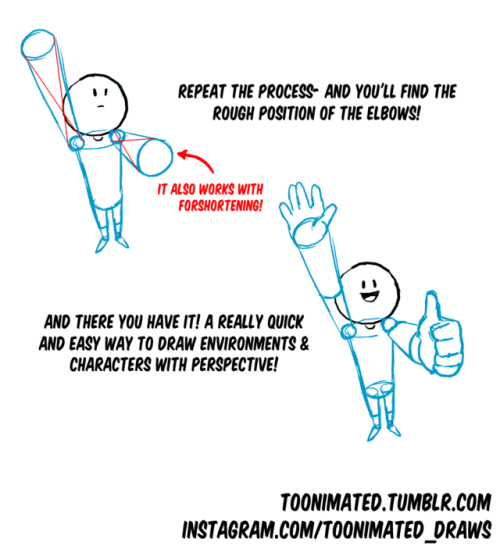
COFFEE QUEST CONTINUES!
Join our coffee adventure!- Or at least check out more Art Goodies here:
[Check out Toonimated’s Coffee Quest] <Take a look!
Art Help

I redid this list because broken links 💀
General Tips
Stretch your fingers and hands
Art is for fun
Never too late to start/improve
Using a tablet
Editing software: pictures & video
Moodboard resources
Comic pacing
Watercolor
Coloring
Color Theory (not children's hospital)
Resources: coloring things a different color
Gold
Dark Skin undertones
Dark Skin in pastel art
POC Blush tones
Eyes colors
Cohesive Color Palette
Lights and Colors
Human Anatomy
POSE REFERENCES
Wizard Battle poses
Romance poses
Shoulders
Tips for practicing anatomy
Proportional Limbs
Skeletons
Hair Directions
Afro, 4C hair
Cane use
Clothing
Long skirts
Traditional Chinese Hanfu (clothing reference)
CLOTHING REFERENCE
Sewing information
Animals
Horse -> Dragon
Snouts: dogs, cats, wolves, fox
Foot, paw, hoof
More
Drawing references sources
Art tutorial Masterlist
Another art tutorial Masterlist
Inspiration: father recreates son's art
Inspiration: Lights
ART BOOKS
Plants/flowers: North America, Hawaii, Patagonia
Art Cheats
do you know of any clothing brands that are for plus sized men? pretty much all the articles ive seen talking about "the BEST plus sized brands!!!" are basically exclusively womens clothing brands
So true!! I’m glad you asked! Here are some stores I found for plus sized men’s clothing!
bearskn
Chubstr
King Size
Gc2b - plus size binders!
ASOS
Big Boy Season 365
Boohoo Men’s
Bonobos
DXL
Target
Johnny Bigg
SHEIN Men’s
Limitless XL
Old Navy
Wrangler
Bad Rhino
Words to use instead of ‘said’
**Using the word ‘said’ is absolutely not a bad choice, and in fact, you will want to use it for at least 40% of all your dialogue tags. Using other words can be great, especially for description and showing emotion, but used in excess can take away or distract from the story.
Neutral: acknowledged, added, affirmed, agreed, announced, answered, appealed, articulated, attested, began, bemused, boasted, called, chimed in, claimed, clarified, commented, conceded, confided, confirmed, contended, continued, corrected, decided, declared, deflected, demurred, disclosed, disputed, emphasized, explained, expressed, finished, gloated, greeted, hinted, imitated, imparted, implied, informed, interjected, insinuated, insisted, instructed, lectured, maintained, mouthed, mused, noted, observed, offered, put forth, reassured, recited, remarked, repeated, requested, replied, revealed, shared, spoke up, stated, suggested, uttered, voiced, volunteered, vowed, went on
Persuasive: advised, appealed, asserted, assured, begged, cajoled, claimed, convinced, directed, encouraged, implored, insisted, pleaded, pressed, probed, prodded, prompted, stressed, suggested, urged
Continuously: babbled, chattered, jabbered, rambled, rattled on
Quietly: admitted, breathed, confessed, croaked, crooned, grumbled, hissed, mumbled, murmured, muttered, purred, sighed, whispered
Loudly: bellowed, blurted, boomed, cried, hollered, howled, piped, roared, screamed, screeched, shouted, shrieked, squawked, thundered, wailed, yelled, yelped
Happily/Lovingly: admired, beamed, cackled, cheered, chirped, comforted, consoled, cooed, empathized, flirted, gushed, hummed, invited, praised, proclaimed, professed, reassured, soothed, squealed, whooped
Humour: bantered, chuckled, giggled, guffawed, jested, joked, joshed
Sad: bawled, begged, bemoaned, blubbered, grieved, lamented, mewled, mourned, pleaded, sniffled, sniveled, sobbed, wailed, wept, whimpered
Frustrated: argued, bickered, chastised, complained, exasperated, groaned, huffed, protested, whinged
Anger: accused, bristled, criticized, condemned, cursed, demanded, denounced, erupted, fumed, growled, lied, nagged, ordered, provoked, raged, ranted remonstrated, retorted, scoffed, scolded, scowled, seethed, shot, snapped, snarled, sneered, spat, stormed, swore, taunted, threatened, warned
Disgust: cringed, gagged, groused, griped, grunted, mocked, rasped, sniffed, snorted
Fear: cautioned, faltered, fretted, gasped, quaked, quavered, shuddered, stammered, stuttered, trembled, warned, whimpered, whined
Excited: beamed, cheered, cried out, crowed, exclaimed, gushed, rejoiced, sang, trumpeted
Surprised: blurted, exclaimed, gasped, marveled, sputtered, yelped
Provoked: bragged, dared, gibed, goaded, insulted, jeered, lied, mimicked, nagged, pestered, provoked, quipped, ribbed, ridiculed, sassed, teased
Uncertainty/Questionned: asked, challenged, coaxed, concluded, countered, debated, doubted, entreated, guessed, hesitated, hinted, implored, inquired, objected, persuaded, petitioned, pleaded, pondered, pressed, probed, proposed, queried, questioned, quizzed, reasoned, reiterated, reported, requested, speculated, supposed, surmised, testified, theorized, verified, wondered
This is by no means a full list, but should be more than enough to get you started!
Any more words you favor? Add them in the comments!
Happy Writing :)
art cheats
hello i am here today to not lose track of the art cheats i have discovered over the years. what i call art cheat is actually a cool filter/coloring style/way to shade/etc. that singlehandedly makes art like 20 times better
80’s anime style
glitch effect
glow effects
adding colors to grayscale paintings
foreshortening ( coil )
foreshortening ( perspective )
clipping group (lines)
clipping group (colors)
dramatic lighting ( GOOD )
shading metal
lighting faces
that is all for today, do stay tuned as i am always hunting for cool shit like this
Writing advice from my uni teachers:
If your dialog feels flat, rewrite the scene pretending the characters cannot at any cost say exactly what they mean. No one says “I’m mad” but they can say it in 100 other ways.
Wrote a chapter but you dislike it? Rewrite it again from memory. That way you’re only remembering the main parts and can fill in extra details. My teacher who was a playwright literally writes every single script twice because of this.
Don’t overuse metaphors, or they lose their potency. Limit yourself.
Before you write your novel, write a page of anything from your characters POV so you can get their voice right. Do this for every main character introduced.
-
 m3a7gr1nd3r reblogged this · 6 months ago
m3a7gr1nd3r reblogged this · 6 months ago -
 newdawnhorizon reblogged this · 9 months ago
newdawnhorizon reblogged this · 9 months ago -
 megamindfandombookclub reblogged this · 9 months ago
megamindfandombookclub reblogged this · 9 months ago -
 megamindfandombookclub reblogged this · 9 months ago
megamindfandombookclub reblogged this · 9 months ago -
 inkpotandplot reblogged this · 10 months ago
inkpotandplot reblogged this · 10 months ago -
 fleuradors liked this · 11 months ago
fleuradors liked this · 11 months ago -
 dianaforever liked this · 11 months ago
dianaforever liked this · 11 months ago -
 jensky2000 liked this · 1 year ago
jensky2000 liked this · 1 year ago -
 rirori-jeorgiarn reblogged this · 1 year ago
rirori-jeorgiarn reblogged this · 1 year ago -
 whitemistwolf liked this · 1 year ago
whitemistwolf liked this · 1 year ago -
 poetryclubsystem liked this · 1 year ago
poetryclubsystem liked this · 1 year ago -
 dancingafterdark liked this · 1 year ago
dancingafterdark liked this · 1 year ago -
 bumblingwitch liked this · 1 year ago
bumblingwitch liked this · 1 year ago -
 roselinbooks-archive reblogged this · 1 year ago
roselinbooks-archive reblogged this · 1 year ago -
 gloriousvoidheart liked this · 1 year ago
gloriousvoidheart liked this · 1 year ago -
 randomlettrrsqqssfxwcvhxnqbwriro liked this · 1 year ago
randomlettrrsqqssfxwcvhxnqbwriro liked this · 1 year ago -
 jademanniharley liked this · 1 year ago
jademanniharley liked this · 1 year ago -
 deeversuswords reblogged this · 1 year ago
deeversuswords reblogged this · 1 year ago -
 deeversuswords liked this · 1 year ago
deeversuswords liked this · 1 year ago -
 megamindfandombookclub liked this · 1 year ago
megamindfandombookclub liked this · 1 year ago -
 fayvs-blog reblogged this · 1 year ago
fayvs-blog reblogged this · 1 year ago -
 buildmeafairytale liked this · 1 year ago
buildmeafairytale liked this · 1 year ago -
 ch4r-scr34ms reblogged this · 1 year ago
ch4r-scr34ms reblogged this · 1 year ago -
 unrepentantweirdo liked this · 1 year ago
unrepentantweirdo liked this · 1 year ago -
 archaicangels liked this · 1 year ago
archaicangels liked this · 1 year ago -
 problematicpancake liked this · 1 year ago
problematicpancake liked this · 1 year ago -
 peskyprocrastinator liked this · 1 year ago
peskyprocrastinator liked this · 1 year ago -
 heckcareoxytwit reblogged this · 1 year ago
heckcareoxytwit reblogged this · 1 year ago -
 annoying-introvert liked this · 1 year ago
annoying-introvert liked this · 1 year ago -
 jfictitional reblogged this · 1 year ago
jfictitional reblogged this · 1 year ago -
 star-of-the-sea-ta liked this · 1 year ago
star-of-the-sea-ta liked this · 1 year ago -
 mysticstarlightduck liked this · 1 year ago
mysticstarlightduck liked this · 1 year ago -
 iskandersmuts liked this · 1 year ago
iskandersmuts liked this · 1 year ago -
 the-dianasaurus33 liked this · 1 year ago
the-dianasaurus33 liked this · 1 year ago -
 the-tropes-are-hungry reblogged this · 1 year ago
the-tropes-are-hungry reblogged this · 1 year ago -
 the-tropes-are-hungry liked this · 1 year ago
the-tropes-are-hungry liked this · 1 year ago -
 vierss-herondale liked this · 1 year ago
vierss-herondale liked this · 1 year ago -
 halfblood-princes-crown liked this · 1 year ago
halfblood-princes-crown liked this · 1 year ago -
 creativeimagination206 liked this · 1 year ago
creativeimagination206 liked this · 1 year ago -
 adorable-bookworm liked this · 1 year ago
adorable-bookworm liked this · 1 year ago -
 fwleminql liked this · 1 year ago
fwleminql liked this · 1 year ago -
 lavieverde reblogged this · 1 year ago
lavieverde reblogged this · 1 year ago -
 quietlyinlife liked this · 1 year ago
quietlyinlife liked this · 1 year ago -
 snarkmaiden liked this · 1 year ago
snarkmaiden liked this · 1 year ago -
 lavieverde liked this · 1 year ago
lavieverde liked this · 1 year ago -
 shiningstars-world liked this · 1 year ago
shiningstars-world liked this · 1 year ago -
 bechdxl liked this · 1 year ago
bechdxl liked this · 1 year ago -
 sswslitinmotion liked this · 1 year ago
sswslitinmotion liked this · 1 year ago -
 ghosthunny liked this · 1 year ago
ghosthunny liked this · 1 year ago
